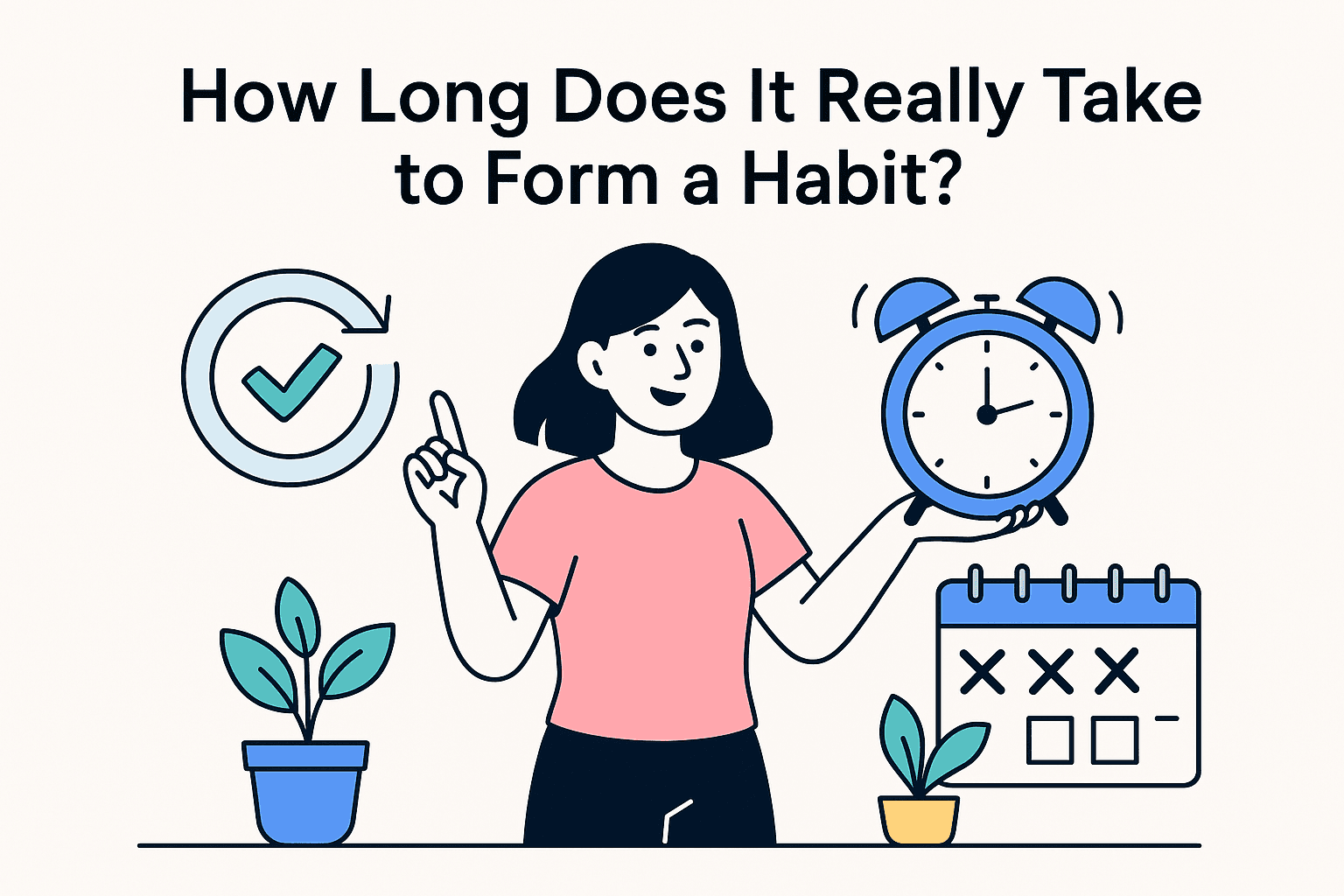
Forming Habits that Last

TL;DR
Forming a habit doesn't happen in a magic number of days. Research shows it can take anywhere from a few weeks to several months, depending on the behavior and your consistency. Be patient, stay flexible, and focus on steady progress over perfection.
The 21-Day Myth (and Why It Won't Save You)
We've all heard it: "It takes 21 days to form a habit." It's a popular notion, but science tells a different story.
The idea dates back to the 1960s when Dr. Maxwell Maltz observed that his patients took about 21 days to adjust to changes. However, this observation has been misinterpreted and generalized over time.
So How Long Does It Actually Take?
According to a study by Dr. Phillippa Lally, forming a new habit takes an average of 66 days, with some habits taking as long as 254 days to become automatic.
Factors influencing this duration include:
- Complexity of the habit
- Individual differences
- Consistency of practice
It's Not About Days—It's About Reps
Building habits is about repetitions, not calendars. The more you practice a behavior in a consistent context, the more likely it is to become automatic.
Psychologist Wendy Wood emphasizes that habits are formed by repeated behavior in a stable context.
What Actually Helps:
- Consistency Over Perfection - It's better to show up imperfectly than not at all.
- Trigger Cues - Anchor your habit to an existing routine (e.g., after brushing your teeth, meditate for a minute).
- Reduce Friction - Make your habit easy to perform.
- Reward Loops - Reward yourself in small, meaningful ways to reinforce the behavior.
Real Talk: Don't Rush It
Yes, you can build habits faster if they're simple, repeated daily, and done in the same environment. But it's okay if you're not fully locked in after three weeks. Sustainable change takes time.
Think of your habit as a plant. You can't rush the growth, but you can water it daily, provide sunlight, and let time do its thing.